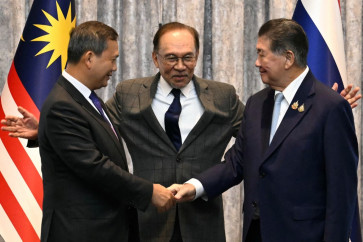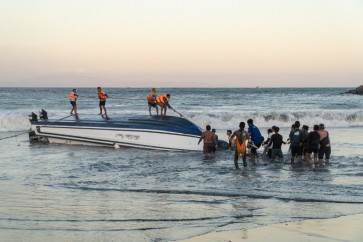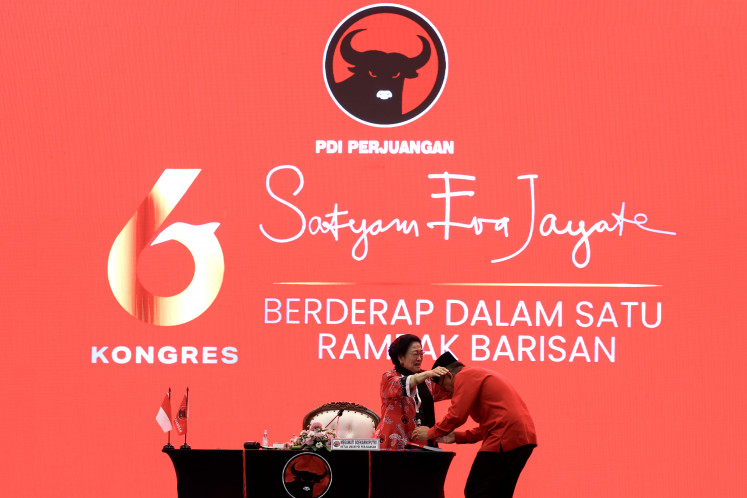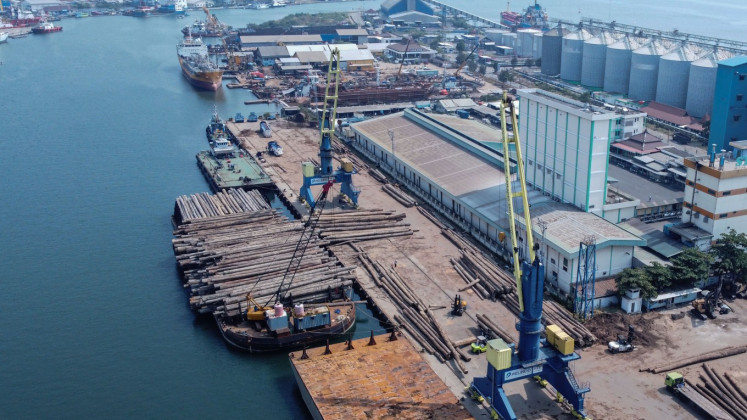Popular Reads
Top Results
Can't find what you're looking for?
View all search resultsPopular Reads
Top Results
Can't find what you're looking for?
View all search resultsDurban deal moves forward on EU proposal
As more countries agreed to adopt a European Union (EU) proposal, the UN climate conference in Durban, South Africa, inched closer to its endgame on Friday afternoon
Change text size
Gift Premium Articles
to Anyone
A
s more countries agreed to adopt a European Union (EU) proposal, the UN climate conference in Durban, South Africa, inched closer to its endgame on Friday afternoon.
South African Foreign Minister Maite Nkoana-Mashabane, the conference president, said that various groups including the Alliance of Small Island States (AOSIS), less-developed countries (LDCs), the EU, African groups, the G77 and China were moving to common ground on various issues.
“Today is officially the last day. With the very limited time at our disposal, work will continue throughout the course of today to ensure that we achieve the best possible outcome,” she said on Friday.
“Parties are engaging genuinely and working very hard to ensure that an agreement is reached. Parties are looking at convergences and are guided by trust and the spirit of give and take for a common goal of working together to save tomorrow.”
Amid the economic recession plaguing major economies, the two-week convention started with doubts it would produce a significant outcome.
Resistance to the Kyoto Protocol, the holy grail of the conference, was expected from Japan, which has been suffering from the impact of a major tsunami in March and the US, the main detractor of the treaty that has been also in a recession.
A vision for a real output in Durban, appeared last night after AOSIS, LDCs and African blocs agreed to support a proposal from the EU for a future global commitment for an emissions cut. Brazil and South Africa also backed the proposal.
“A deal is within reach. The EU’s road map is at the core of these intense negotiations. I find it significant and telling that the poorest countries of this world, the most vulnerable ones, are together with the EU,” Connie Hedegaard, the EU commissioner for climate action, said.
“If there is no further movement from what I have seen until 4 this morning, then I must say I don’t think that there will be a deal in Durban.”
The agreement with the countries has seen the EU compromise its time frame for the new road map.
All countries have agreed to have a legal framework in 2015 and to have it effective by 2020.
The major stumbling blocks are the US, China and India. The US said it would agree to a global commitment to reduce emissions but it disagreed on a legally binding regime, while India is not convinced with the details of the proposed road map. China said it might agree but gave signs of refusal as it wanted to be considered as a developing country in terms of its capability to reduce emissions.
“The success or failure of Durban lies in the hands of small number of countries who have yet committed to the road map and to the meaningful concept that it must have. We have to get them on board today,” Hedegaard said.
“The world is waiting for them.”










